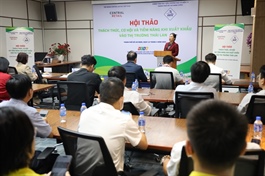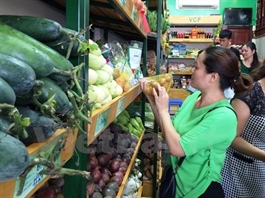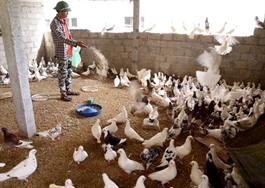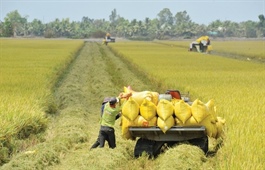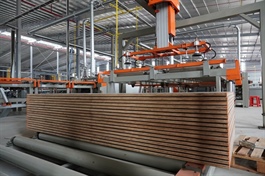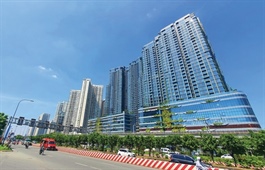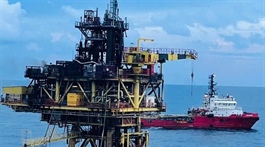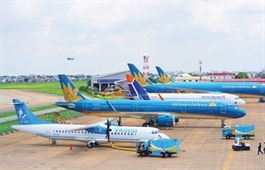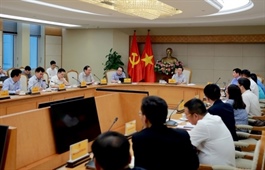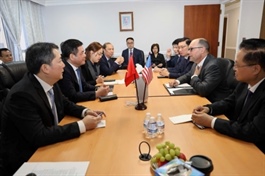Poultry industry faces major challenges amid weak value chain linkages
Poultry industry faces major challenges amid weak value chain linkages
Technology must be seen as a leading force to drive progress and maintain growth momentum.
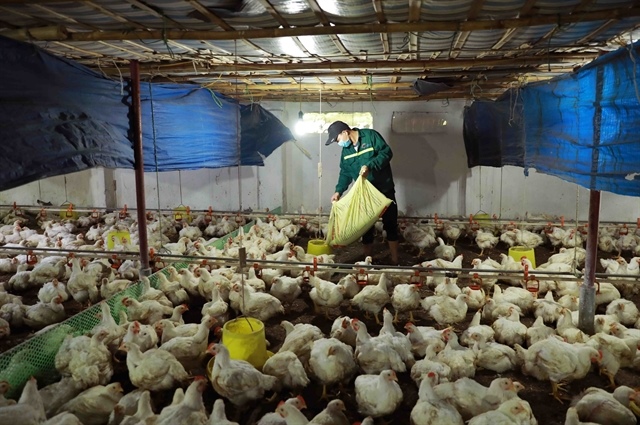
A broiler farm in Hà Nội's Chương Mỹ District. — VNA/VNS Photos Vũ Sinh |
Despite decades of growth, Việt Nam’s poultry industry is grappling with significant difficulties, particularly a lack of effective value chain integration and poor supply-demand forecasting, industry insiders warned on Thursday.
Speaking at a conference on developing the poultry industry through a sustainable value chain, held in Hà Nội, Nguyễn Thanh Sơn, chairman of the Việt Nam Poultry Association, said the sector has made remarkable progress in terms of output, technology and exports over the past 40 years.
By 2024, Việt Nam had reached an annual output of 2.4 million tonnes of poultry meat and over two billion eggs. The country exports roughly 5.8 to 6.1 million poultry breeds and 4,600-5,100 tonnes of poultry meat each year.
Since 2022, however, the sector has entered a downturn, marked by market instability, reduced profitability, and an overall loss of direction, Sơn said.
Trần Ngọc Yến, a representative from AgroMonitor, said that while the industry is benefiting from a unified regulatory framework, a growing domestic market, falling feed costs, and improved access to technology and investment, longstanding structural challenges related to value chain linkages, distribution systems, consumption habits and diseases remain.
Heavy dependence on imported inputs, market volatility, geopolitical tensions and climate change further complicate livestock operations, Yến said.
To overcome these issues, Chairman Sơn called for a structural shift in the poultry industry, transitioning from fragmented production to an integrated economy.
"Enterprises must lead the value chain, while small producers need to be integrated into the system,” he said, stressing the importance of State support in facilitating businesses in the sector.
Sơn urged the industry to expand into global value chains and reopen domestic and international markets by delivering competitively priced products to consumers.
“These are the three key paths forward for Việt Nam’s poultry sector,” he said.
During the conference, Associate Professor Dr. Nguyễn Thị Bình from the Foreign Trade University outlined three key components required to strengthen the value chain.
First, Bình highlighted the importance of securing reliable input materials, such as breeding chickens, feed and vaccines. She noted that Việt Nam has made significant strides in this area, which provides a solid foundation for the sector.
Second, she stressed the need for robust production processes, particularly the establishment of central enterprises to manage crucial stages of the production cycle, including domestic breeding and sourcing animal feed.
Finally, she addressed the trade aspect, which she described as the industry's weakest point. She called for strategic cooperation among producers to build a cohesive value chain.
Additionally, she emphasised the essential role of industry associations in representing the sector’s interests, facilitating training and technology transfer, and working towards a sustainable value chain in the future.
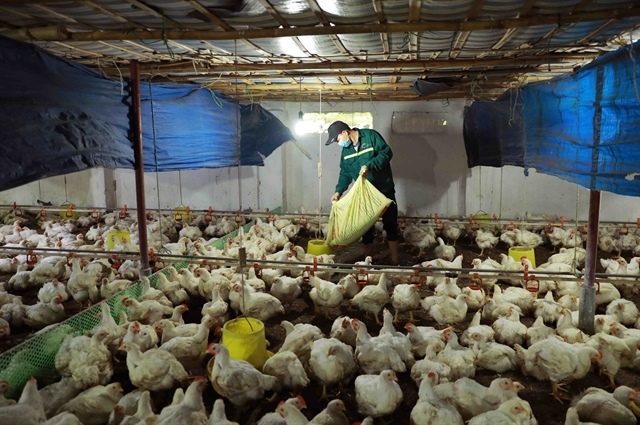
A broiler farm in Hà Nội's Chương Mỹ District. — VNA/VNS Photos Vũ Sinh |
Deputy Minister of Agriculture and Environment Phùng Đức Tiến stressed the urgent need to streamline administrative procedures and establish clear standards and regulations tailored to today’s context. He emphasised the importance of investing in science and technology, especially in breeding production.
Tiến also called for stronger efforts in processing and deep processing, along with major improvements in small-scale slaughterhouse management to ensure food safety. Building a fully integrated value chain –from breeding feed, and farming techniques to processing and market promotion – should also be included.
In addition, he urged greater international cooperation, particularly in the areas of scientific research, technological innovation, and sustainable development.
“Technology must be seen as a leading force to drive progress and maintain growth momentum,” he said.
The Deputy Minister also sounded the alarm on smuggling, labeling it as one of the biggest threats facing the livestock industry today.
- 17:06 22/05/2025







